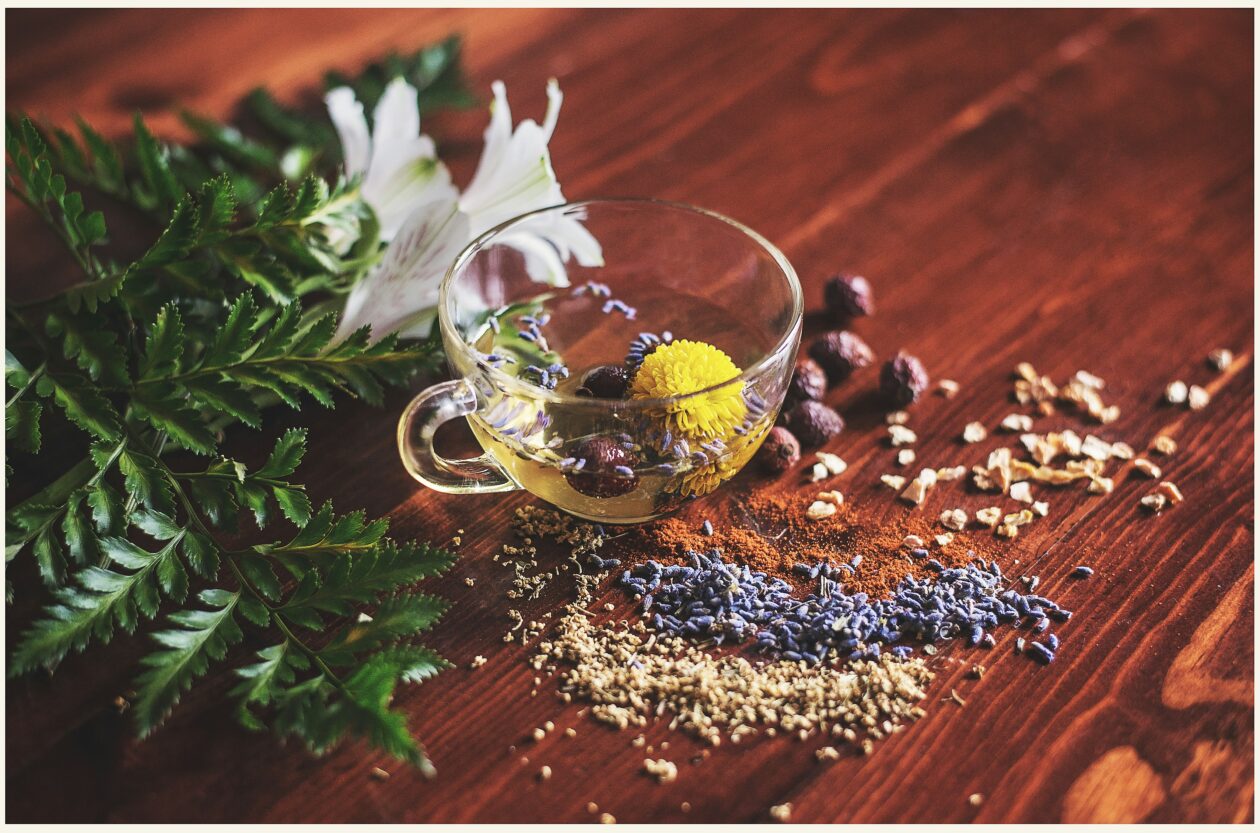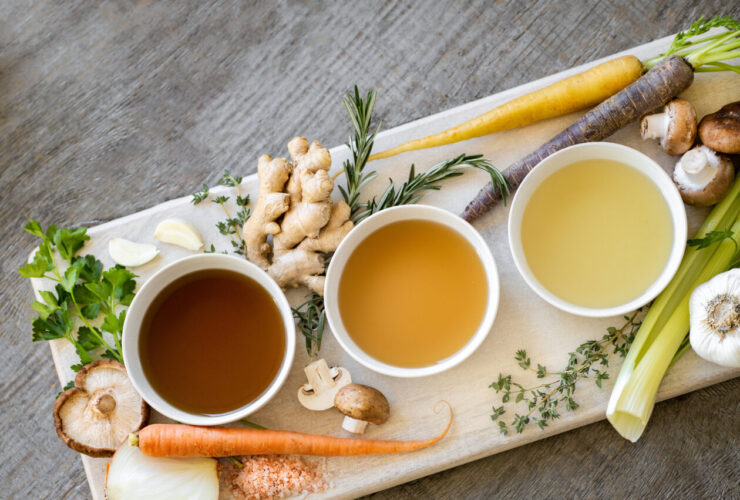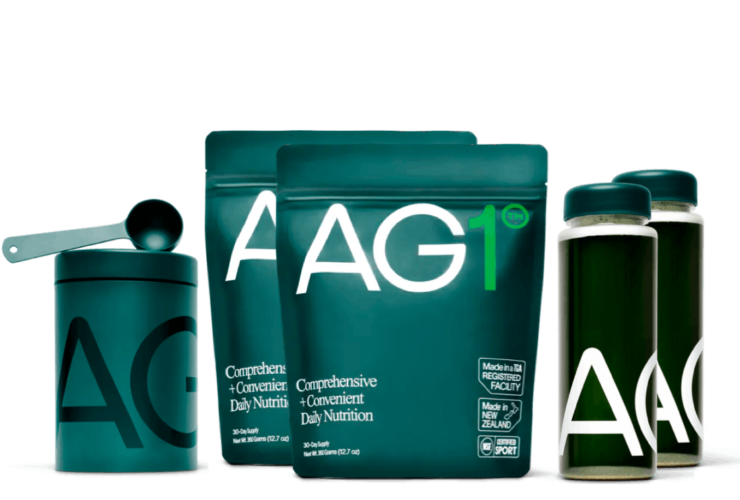Introduction
Intermittent fasting has become more popular as a lifestyle strategy for wellbeing and health. This dietary approach alternates between eating and fasting intervals and may help with weight loss, metabolic health, and cognitive performance. Questions concerning what can and cannot be consumed during fasting periods frequently come up as people learn more about the different aspects of intermittent fasting.
One question that frequently arises in conversations about intermittent fasting is, “Does herbal tea break intermittent fasting?” People often choose herbal tea because of its many health benefits when looking for a beverage to replace typical teas or coffee during fasting windows. In this section, we explore the subtleties of herbal tea and how it affects intermittent fasting. Knowing if herbal tea is compatible with intermittent fasting is essential for those who want to get the most out of their fasts while still enjoying a wide range of tasty and possibly health-promoting beverages. Now, let’s investigate whether adding herbal tea to your diet adheres to the principles of intermittent fasting or if it breaks the fast.
What is Intermittent Fasting?
A versatile and well-liked nutritional approach, intermittent fasting includes several methods, including time-restricted eating, alternate-day fasting, and the 5:2 method. During alternate-day fasting, alternating between days of ordinary eating and days of reduced calorie intake, time-restricted eating limits daily food intake to a set time window. The 5:2 approach calls for five-day regular eating and calorie restriction for the final two. Accepting several variations of intermittent fasting allows people to select a technique that fits their lifestyle and health objectives.
The flexibility of intermittent fasting and its possible health advantages have drawn interest. Research indicates that there could be a connection between weight loss, better insulin sensitivity, improved metabolic health, and intermittent fasting. It has also been linked to benefits for longevity, brain function, and cardiovascular health. Knowing the many health benefits of intermittent fasting becomes critical as more people consider implementing it into their daily regimen. With this information, people are more equipped to decide what to eat and whether to add herbal tea without sacrificing the benefits of fasting.
Does Herbal Tea Break Intermittent Fasting?
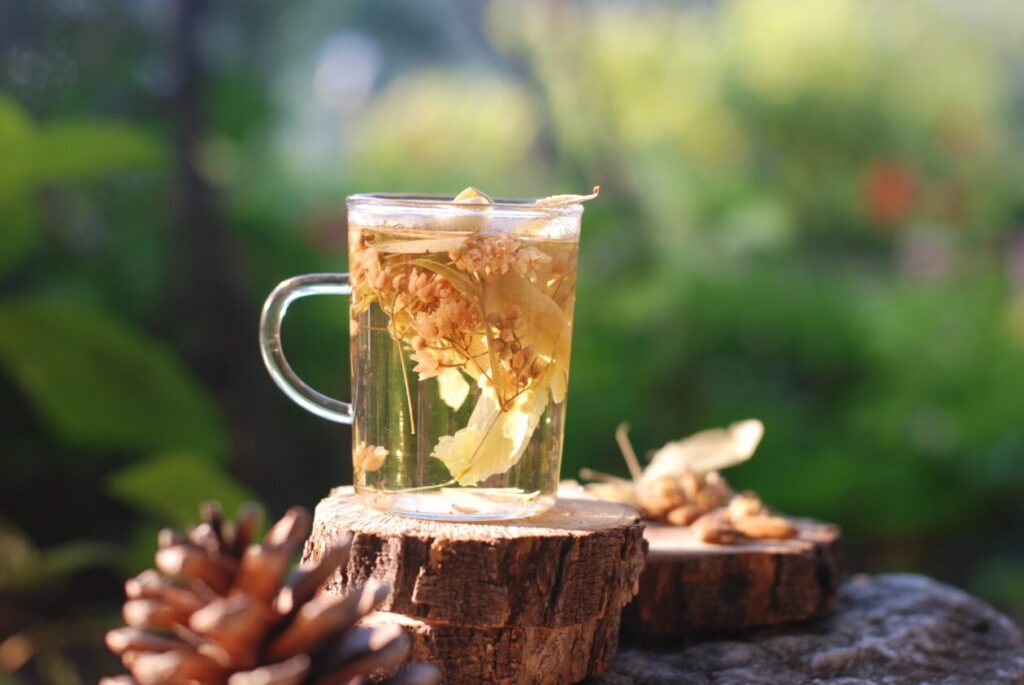
Concerns about what can be eaten during the hours of fasting are common as intermittent fasting becomes more and more popular. Here, we answer a frequently asked question—”Does herbal tea break intermittent fasting?”—to help you make well-informed decisions when fasting.
Understanding Herbal Tea and Fasting
If you drink tea without any added sugar or milk, it can be suitable for intermittent fasting. This includes peppermint, fruit, green, and even flavored teas. Herbal teas are often considered ideal for fasting, especially ones containing few or no calories. It is necessary to go into further detail to ensure your decisions align with your fasting objectives.
Best Tea Choices for Intermittent Fasting
Choosing unsweetened herbal teas such as peppermint or chamomile during intermittent fasting can be smart. These teas greatly complement your fasting regimen since they provide several advantages, like lowered stress levels and better digestion. Another well-liked and advantageous choice is green tea, well-known for its antioxidant qualities.
Navigating Teas with Additives
It’s important to ensure flavored or fruit teas don’t contain any added sugar or artificial sweeteners. When on an intermittent fast, adding sugar to your tea could interfere with the state of fasting and the metabolic processes you are trying to promote.
Herbal Tea and Intermittent Fasting: Beyond Yes or No
It’s difficult to say whether herbal tea breaks intermittent fasting because of the complex environment. Although it may be desirable to have a yes-or-no response, the truth is more nuanced. The fundamental principle of intermittent fasting is the restriction of calories during particular times to initiate metabolic reactions. Herbal teas bring complexity because their compositions can differ greatly; some may have very few calories, while others may have higher energy contents. As such, a conclusive response necessitates considering the particular fasting objectives and the contents of the herbal tea.
When attempting to comprehend the effect of herbal tea on intermittent fasting, it is important to acknowledge that some herbal teas provide very few calories. They may not materially interfere with the fasting condition. Herbal infusions, derived from peppermint or chamomile, are frequently calorie-free, making them possible allies for people who follow intermittent fasting. But people react differently to even very low-calorie intake, so it takes a customized strategy to determine whether herbal tea fits your fasting objectives.
Choosing the right herbal tea for intermittent fasting can greatly impact how things work out. Making decisions is influenced by knowing the goals of the fast, such as weight loss, increased autophagy, or better metabolic health. Herbal teas with relaxing effects and antioxidants that support the fasting goals could be considered. Conversely, herbal teas that include substances that can raise insulin levels or added sugars would need to be used with caution. Managing the subtleties of drinking herbal tea while on an intermittent fast requires careful consideration of both the properties of the herbal infusion and one’s fasting goals.
Types of Herbal Teas that Can Break a Fast
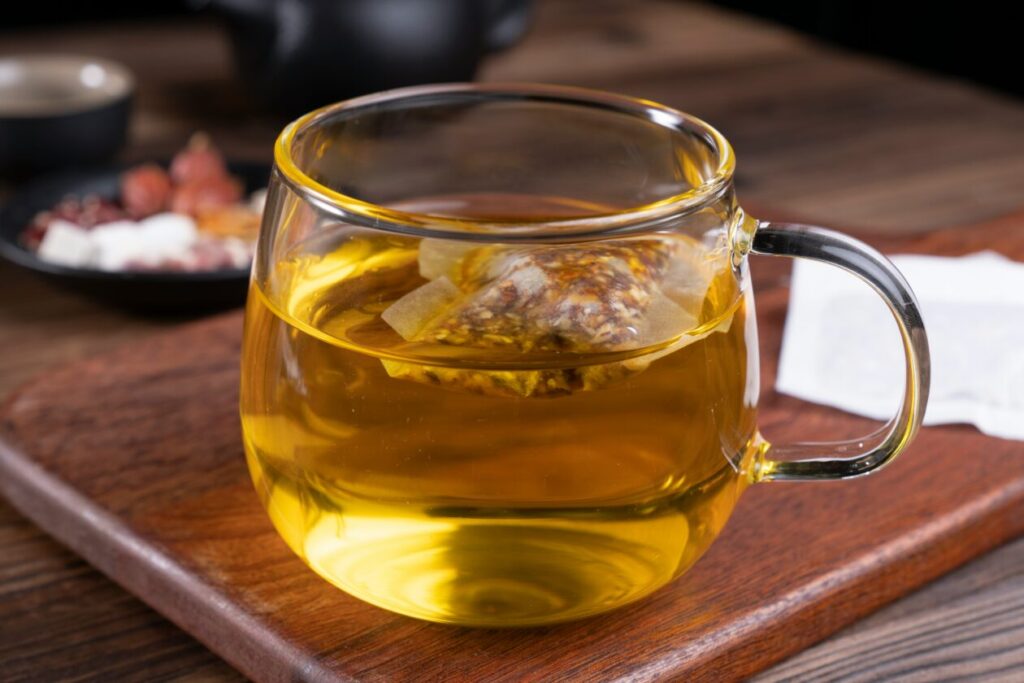
Investigating which particular varieties of herbal teas may affect the fasting state is essential for determining whether or not herbal tea disrupts intermittent fasting. Caffeine-containing teas, such as green tea, can affect how quickly your metabolism works. It has been demonstrated that caffeine stimulates the central nervous system, which may raise metabolic rate and promote fat burning. Individual differences may exist in the degree to which this influences intermittent fasting. While some people may find that the increase in metabolism helps them achieve their fasting objectives, others may find that drinking herbal teas with less caffeine helps them stay in a more stable fasting condition.
Some herbal teas, such as chamomile, have diuretic effects that may affect water excretion. Restoring fluids may cause a brief weight loss, although it usually has little impact on intermittent fasting. Rather than being centered around transient variations in water weight, fasting is more about specific metabolic responses and calorie restriction. People who sometimes fast should know these subtleties, realizing that some herbal teas’ diuretic properties would maintain the fasting fundamentals.
It’s critical to acknowledge that results when evaluating herbal teas’ impact on intermittent fasting might be complex and unique. Although several herbal drinks might include properties that could theoretically affect fasting, the real-world impacts are frequently insignificant. How herbal tea and intermittent fasting interact depends on several factors, including metabolism, food in general, and individual reactions to particular herbal constituents. Like with any dietary decision, people should pay attention to and comprehend how their bodies react so they may make well-informed choices that support their fasting goals.
The Advantages of Drinking Herbal Tea During a Fast
Herbal tea might be a beneficial addition to the fasting regimen for people new to intermittent fasting. It’s important to investigate the benefits of some herbal teas to the fasting experience, even though the main question is whether they break the fast. Herbal teas, which are frequently low in calories, can bring taste and comfort to fasting times, making the experience more enjoyable overall without sacrificing the calorie restriction required for the benefits of fasting.
Being relatively stress-free during fasting is possible with herbal teas, known for their relaxing qualities. For instance, teas made with chamomile and lavender have ingredients known to ease stress and encourage relaxation. Including these teas in your fasting regimen may improve mental health and sensory experience while fostering a more positive and controllable fasting environment.
Some herbal drinks, like ginger and peppermint, are known to help with digestion. Keeping your digestive system operating at its best during a fast is essential. Ginger tea may facilitate digestion and lessen nausea, while peppermint tea can help relax the digestive tract and ease discomfort. Adding these herbal drinks to your fasting routine can support digestive health without sacrificing the core ideas of intermittent fasting.
Prioritizing water during intermittent fasting is crucial, regardless of the herbal tea selections made. During fasting, maintaining proper hydration is vital for general health and wellbeing. Frequently drunk hot or cold herbal teas can help you meet your daily fluid requirements and hydration objectives. When researching the potential benefits of herbal teas during fasting, try to balance by observing the prospective benefits and following fasting recommendations for best outcomes.
Fasting Teas 101
Recently, fasting teas have become increasingly well-liked as a helpful tool for intermittent fasters. Herbal teas are notable due to their various flavors and possible health advantages. Examining the ingredients of herbal teas and their effects on the fasting state is necessary to determine whether or not they disrupt intermittent fasting.
Whether drinking herbal tea during an intermittent fast will interfere with the fast is a prevalent worry among sporadic fasters. It should be made clear that unsweetened herbal teas, which are usually calorie-free, do not disrupt the condition of fasting. Herbal teas offer a tasty and pleasurable approach to staying hydrated during fasting periods without sacrificing the metabolic and physiological benefits of intermittent fasting.
To completely understand how herbal tea works with intermittent fasting, it is important to review the overall advantages of this type of fasting. Numerous health benefits, such as reduced body weight, enhanced insulin sensitivity, and better cholesterol control, have been associated with intermittent fasting. Herbal teas are a refreshing and calorie-free choice that compliments the overall goals of intermittent fasting for individuals looking for a sustainable and balanced approach to health and wellness. Their inclusion in the fasting window is in line with these goals.
Functions of Fasting Teas
Teas for fasting have a variety of uses in helping those who fast intermittently. In addition to being tasty drinks, these teas serve multiple purposes that align with the fasting objectives. Making wise decisions during fasting might be facilitated by being aware of their various roles.
It’s crucial to stay hydrated during intermittent fasting; fasting teas might be useful in this regard. Herbal teas help you stay hydrated without breaking your fast because they are free of calories and most forms of caffeine. This is essential for maintaining general health and assisting with physiological processes while fasting.
Herbal teas’ ability to reduce hunger is one important advantage of including them in intermittent fasting regimens. Evidence has linked certain herbal teas, such as ginger and peppermint, to appetite regulation. These teas suppress appetite, which helps people consume fewer calories. This is beneficial for those who are trying to lose weight while following an intermittent fasting regimen.
Herbal teas are well renowned for their calming qualities, and they can help reduce gastrointestinal symptoms like indigestion or bloating when fasting. Furthermore, the natural relaxing properties of teas like lavender and chamomile may help with better sleep, which is important for general health. With these purposes in mind, herbal fasting drinks can improve the fasting experience by promoting mental and physical health.
Forms of Fasting Teas
There are many ways to consume tea while on an intermittent fast, and being aware of these possibilities helps people make decisions that align with their preferences and fasting objectives.
You have a few options for adding tea to your intermittent fasting regimen: conventional tea bags, loose tea leaves, handy capsules, and strips. Tea bags are a well-liked and convenient solution that offers speedy brewing and simplicity. You can adjust the tea’s flavor and intensity with loose tea leaves for a more personalized experience. Tea strips and capsules provide a convenient, pre-portioned option for individuals looking for ease.
Every form offers benefits, and the decision is frequently based on lifestyle and personal preferences. Whether you enjoy the ceremony of steeping loose tea leaves or prefer the convenience of capsules, the most important thing is to ensure the tea stays unsweetened to preserve the integrity of your fast.
Many kinds of tea capsules are available on the market, but you should always be cautious when dealing with unregulated items. Certain pills could include extra calories, sweeteners, or substances that interfere with your fast. Choose trustworthy and controlled brands of tea capsules to go over this.
Additionally, speaking with medical professionals before adding new supplements—like tea capsules—to your fasting regimen is a good idea. The suitability of particular tea formulations can vary depending on personal health circumstances and objectives. Putting your health first and consulting a specialist guarantees a customized and secure method of incorporating fasting teas into your daily routine.
Potential Health Benefits of Fasting Teas
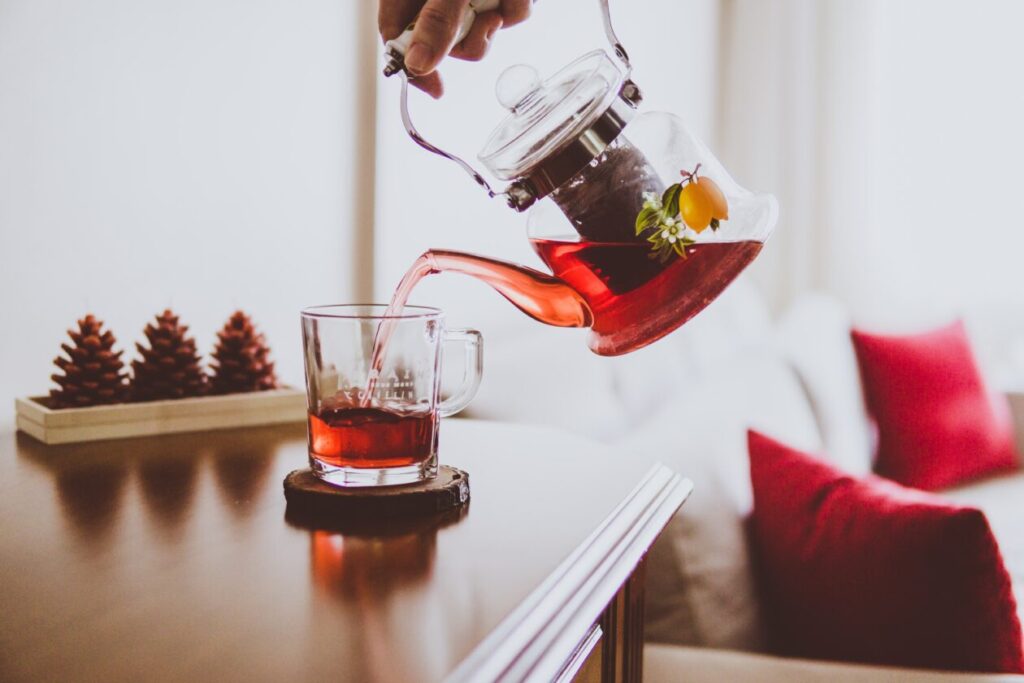
People who are considering intermittent fasting may be motivated by the possibility of discovering the health advantages of drinking fasting teas. Herbal teas can support a fasting regimen when used sensibly, but it’s important to understand the possible benefits and the challenges associated with using them.
- Heart Health: Research indicates that herbal teas may help maintain normal blood pressure and cholesterol levels, improving cardiovascular health.
- Longevity: By preventing oxidative stress, the antioxidants in herbal teas, like green tea, are thought to offer possible benefits for longer life.
- Diabetes Prevention: For people at risk of developing the disease, herbal drinks like cinnamon tea may help increase insulin sensitivity.
- Preventing Cognitive Decline: The antioxidants in herbal teas may help maintain brain function and reduce the chance of cognitive decline.
- Bone Health: Compounds found in teas, such as white tea, may help to increase bone density and promote general bone health.
Herbal teas may provide health benefits, but it’s important to understand that losing weight is still complex. The precise effects of fasting teas on weight loss depend on several variables, such as individual metabolism, food, and level of exercise.
The aforementioned possible health advantages are a component of a comprehensive strategy for overall wellbeing. If you are trying to lose weight, drinking herbal teas alone might not be a good plan if you don’t also think about leading a healthy, balanced lifestyle.
Potential Risks and Side Effects of Fasting Teas
An informed fasting journey requires investigating the safety implications of using fasting teas in your regimen. Although most people consider herbal teas harmless, there are some hazards and side effects to be aware of.
For most people who fast intermittently, herbal teas are harmless if drunk in moderation. Herbal teas’ moisturizing and antioxidant qualities are advantageous during fasting, promoting general wellbeing.
Nonetheless, it’s critical to be aware of certain medical issues and possible drug interactions. Speaking with a healthcare provider, particularly those with health issues, is advisable.
Caffeine-sensitive people may be affected by teas like black or green tea that contain caffeine. While a healthy routine may include a small amount of caffeine, people sensitive to the stimulant can select herbal teas without caffeine to prevent negative effects, such as jitters, insomnia, or elevated heart rate.
Teas advertised as aids in weight loss should be avoided as some may be loaded with laxatives or caffeine. Teas that encourage excessive laxative use to lose weight quickly might cause electrolyte imbalances and dehydration. Furthermore, a high caffeine concentration can have negative consequences, particularly for people who are sensitive to stimulants.
Avoiding teas with potentially dangerous substances can be achieved by selecting trustworthy brands and closely reviewing ingredient labels. During intermittent fasting, using natural herbal teas that aren’t sweetened or include additional stimulants is better.
Who Should Drink Fasting Teas?
Understanding the appropriateness of fasting teas for diverse individuals is imperative to guarantee a secure and advantageous fasting encounter. Here, we discuss general safety precautions and the significance of seeking medical advice whenever in doubt.
Including fasting teas in your routine can positively affect your health, including antioxidant support, hydration, and even hunger-reduction. On the other hand, some people should use caution when using fasting teas. Those who are on medication, have pre-existing medical issues or are pregnant or nursing should exercise extra caution.
Selecting herbal teas based on personal preferences and health objectives is important. Choosing options free of caffeine might be advantageous, particularly for people who are sensitive to stimulants.
Speaking with a healthcare provider is advised before starting a fasting journey that includes herbal teas. Doctors can offer tailored counsel based on patients’ unique medical backgrounds and circumstances.
A customized approach to intermittent fasting is ensured by getting professional counsel if there are concerns about potential drug interactions or underlying health issues with fasting drinks. This individualized guidance is essential for maximizing health benefits and lowering dangers.
How to Choose and Store Fasting Teas
To optimize the advantages of intermittent fasting, select the appropriate fasting teas and make sure they are stored properly. Here, we offer helpful hints for choosing and keeping the right teas fresh.
A. Advice for Selecting the Right Fasting Teas
- Caffeine Content: Choosing herbal teas without caffeine is recommended if you are worried about consuming caffeine while fasting. Herbal teas like rooibos, peppermint, and chamomile are great options because they have distinct tastes without interfering with the fasting process.
- Caloric Considerations: Choose herbal teas that are low in calories or contain none if you want to follow intermittent fasting guidelines. Doing this supports the targeted metabolic and health benefits and maintains the fasting state.
- Natural Ingredients: Look over the ingredients list to avoid teas with artificial or added sugar. Selecting teas made of natural, complete ingredients aligns with intermittent fasting’s holistic philosophy.
B. Storage Guidelines to Preserve the Freshness of Your Tea
- Airtight Containers: Store fasting teas in airtight containers to avoid exposure to air and moisture, which can deteriorate flavor and quality.
- Cool, Dark Place: To maintain the integrity of teas, keep them away from heat sources and direct sunshine. A dark, cold cabinet makes the perfect place to store items.
- Prevent Mixing scents: The flavor of tea might be impacted by the scents absorbed by the tea leaves. To preserve their unique flavors, they store various tea varieties.
Navigating Tea Choices in Intermittent Fasting
Can I Drink Peppermint Tea While Intermittent Fasting?
A cool and sensible choice for intermittent fasting is peppermint tea. It’s safe to drink during a fast since it belongs to the class of herbal teas, but it has more advantages than that. Due to its well-known calming qualities, peppermint tea may help with digestion and offer a comforting feeling when fasting. According to experts, single-ingredient herbal teas, such as peppermint tea, are a great option to enjoy without worrying about breaking the fast.
Can You Drink Fruit Tea While Fasting?
Even if “fruit tea” sounds appealing, intermittent fasting should be done cautiously. The contents of fruit teas can differ greatly; some might have added sugars or fruit extracts that could interfere with the fasting state. Choose calorie-free, single-ingredient herbal teas like chamomile, peppermint, or ginger tea if you want to be extra cautious. These beverages are less likely to compromise the advantages of fasting. Ensure no ingredient additions could interfere with your fasting intentions by always checking them.
Does Flavored Tea Break a Fast?
Depending on the ingredients, flavored tea has a different status during intermittent fasting. Certain flavored teas could include artificial sweeteners, additives, or other ingredients that might cause the fast to be broken. Generally speaking, it is advised to select herbal teas with just one component or natural flavorings. To make sure that the flavored tea supports the objectives of intermittent fasting, it is essential to comprehend the substances specified in the tea box. Always prefer teas that help you stay hydrated without adding extra calories or chemicals.
Can I Drink Milk Tea During Intermittent Fasting?
There are extra considerations when milk is added to tea when fasting intermittently. While drinking basic, unsweetened tea is generally acceptable when fasting, the calorie content of milk may cause the fast to be broken. Milk’s effect on fasting differs for each person, so it’s best to watch your reactions. Consider alternatives such as almond or coconut milk, but be mindful of their calorie count if you want something creamier. It’s important to balance individual preferences and intermittent fasting principles when thinking about milk tea during fasting times.
Does Chamomile Tea Break a Fast?
Due to its relaxing effects, chamomile tea is a popular beverage while fasting intermittently. Chamomile is an herbal drink that contains little nutrients and doesn’t interfere with fasting mechanisms. It is usually safe and helps you relax and reduce stress, improving your fasting experience. Selecting unsweetened chamomile tea free of additional substances or sweeteners guarantees the preservation of the fasting state. Choosing chamomile tea as part of your fast can bring extra health advantages and promote hydration.
Can I Drink Tea With Sugar During Intermittent Fasting?
One important consideration when it comes to intermittent fasting is the presence of sugar in tea. Tea with added sugar has the potential to break the fast since it spikes insulin levels. Use minimum natural sweeteners or avoid sugar if you want your tea sweet. The safest option for people devoted to fasting is to stick to unsweetened herbal teas or teas without added sugar. Emphasizing the tea’s purity guarantees that the benefits of fasting are maintained without adding extra calories or interfering with metabolic processes.
Best Tea for Intermittent Fasting
The individual’s preferences and objectives determine the ideal tea for intermittent fasting. Herbal teas with little effect on insulin levels and possible extra benefits, like chamomile, peppermint, and ginger, are popular. Caffeine-free varieties are recommended to prevent the tea from interfering with sleep during periods of fasting. Ultimately, the ideal tea suits personal preferences, harmonizes with the fasting schedule, and improves the entire fasting experience. It’s critical to select teas that you love drinking without sacrificing the intended benefits of fasting.
Benefits of Green Tea While Fasting
One particularly well-liked and respected beverage for intermittent fasting is green tea. Green tea, which is high in antioxidants and may increase metabolism, supports the objectives of fasting. Green tea’s catechin content may aid in fat burning without having a major effect on insulin levels. Selecting unsweetened, simple green tea improves the experience of fasting by hydrating, possibly improving health, and stimulating the processes involved in burning fat. Including green tea in the fasting, regimen is consistent with optimizing health advantages while avoiding a substantial caloric deficit.
In conclusion, the type of tea chosen during intermittent fasting should align with personal tastes, health objectives, and fasting guidelines. Choosing herbal teas is typically considered safe, especially those with minimum ingredients and caffeine-free alternatives. The secret is to keep abreast of tea ingredients, keep an eye on your reactions, and select teas that enhance the overall benefits of fasting without sacrificing their intended effects.
Conclusion
As we approach the end of our investigation into whether herbal tea disrupts intermittent fasting, it is clear that herbal teas can be useful when fasting. People might discover a wide range of possible health advantages by selecting teas carefully and paying attention to their ingredients.
To reiterate, herbal teas are widely regarded as suitable for fasting, including well-known types like chamomile, peppermint, and green tea. These teas can improve your intermittent fasting experience while maintaining flavor and hydration. They are a great option to support fasting without undermining its advantages due to their low to zero-calorie content.
During intermittent fasting, choosing herbal teas free of added ingredients like sugar or milk is important. Maintaining the integrity of your fasting goals while drinking tea requires keeping it as natural as possible.
Remember that each person’s reaction to intermittent fasting is unique as you traverse its complex landscape. Choosing teas that support your objectives and paying attention to your body’s needs can make your fasting experience more satisfying. Hooray for your wellbeing and the variety of tastes that herbal teas add to your fasting table!
Reference
Johnson, J. (2019, January 28). How to do the 5:2 diet. Medicalnewstoday.com; Medical News Today. https://www.medicalnewstoday.com/articles/324303
Welch, A. (2023, February 23). What Are Fasting Teas? Health Benefits, Risks, More. EverydayHealth.com. https://www.everydayhealth.com/diet-nutrition/fasting-teas/guide/
The health benefits of 3 herbal teas – Harvard Health. (2021, October 21). Harvard Health; Harvard Health. https://www.health.harvard.edu/nutrition/the-health-benefits-of-3-herbal-teas
Marlyse Tchamko. (2023, February 16). Can Herbal Tea Break Your Fast? Exploring the Impact of Sipping on Intermittent Fasting. The Wellness Tea; The Wellness Tea. https://www.thewellnesstea.com/blogs/news/can-herbal-tea-break-your-fast
Was this helpful?

Joseph Emb, RDN
Founder of StyleVitally.com | Registered Dietitian & Wellness Advocate
What I Cover:
I’m passionate about connecting nutrition science and everyday wellness to help people live healthier, more vibrant lives. I write about evidence-based nutrition, mindful eating, sustainable lifestyles, and holistic well-being at StyleVitally.com.
My Background:
The University of Texas in Austin, where I earned my Dietetics diploma, laid the groundwork for my nutrition and health career. My training and hands-on experience taught me the science and art of using nutrition to enhance health and well-being.
Professional Journey:
I’m an RDN with lots of experience. I’ve helped people seeking tailored nutritional recommendations in clinical settings and community outreach programs. My constant learning and professional development ensure that my recommendations are always based on the latest evidence.
Ethical Commitment:
My practice prioritizes integrity. My content is transparent and objective, following the most significant ethical standards. I can give my audience unbiased advice because I’m not affiliated with food businesses or industry associations. I want to help people make informed health decisions that match their values and ambitions.
Join Me on the Wellness Journey:
Join me on the path to vitality and well-being, whether facing nutritional issues, seeking sustainable lifestyle changes, or simply wanting a better, happier you. We’ll discover how diet, mindfulness, and holistic well-being can maximize your potential.


